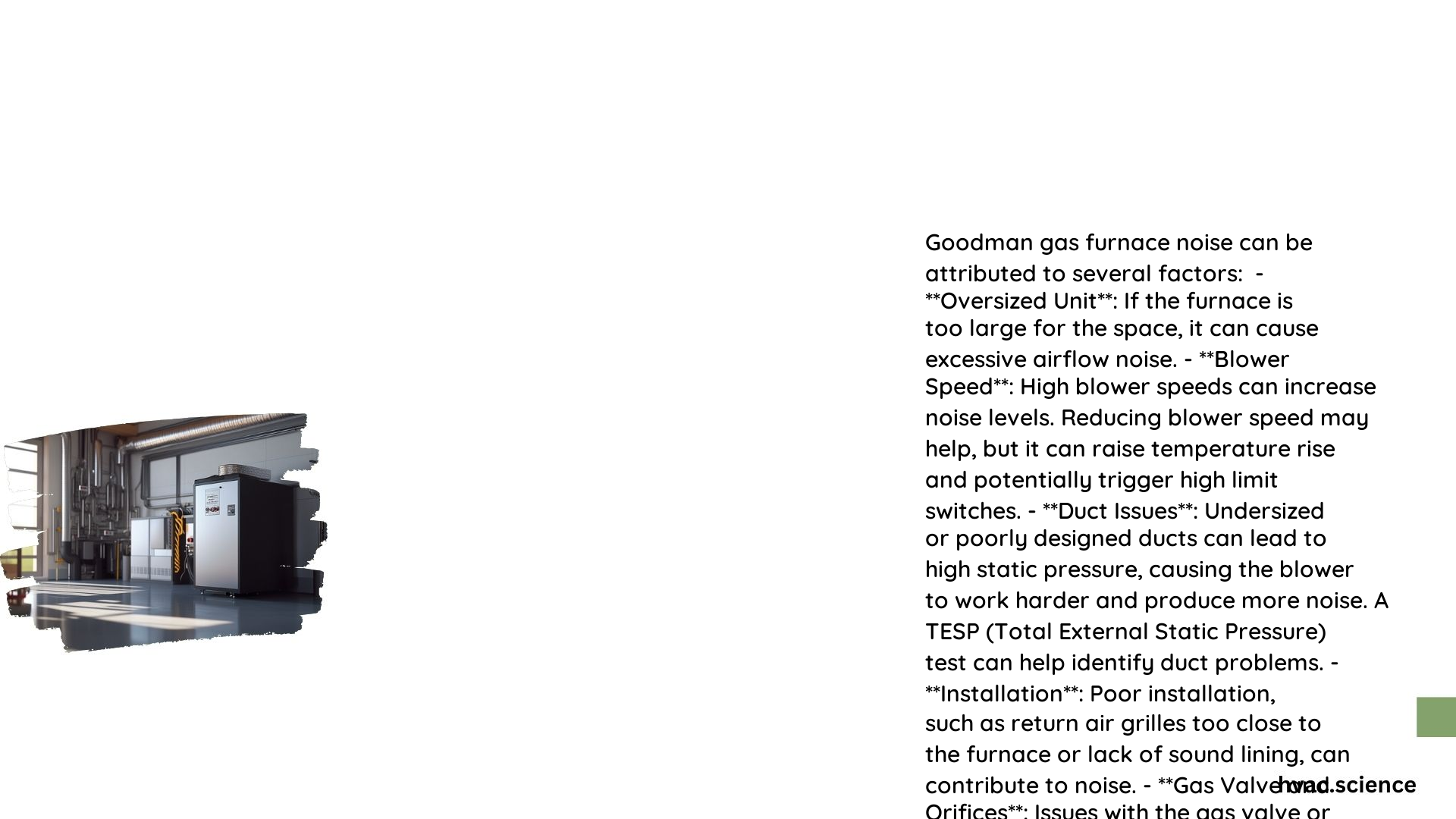Summary
Goodman gas furnaces are known for their reliability and efficiency, but like any appliance, they can sometimes experience issues that result in unusual noises. These noises can range from high-pitched whistles to loud whooping sounds, and they can be caused by a variety of factors, including gas valve problems, clogged burners, airflow issues, and blower motor malfunctions. In this comprehensive guide, we’ll explore the potential reasons for these noises, provide practical solutions, and offer tips on how to maintain your Goodman gas furnace to prevent future issues.
What Causes a High-Pitched Noise When the Gas Turns On?

A high-pitched noise when the gas turns on in a Goodman gas furnace can be attributed to several potential issues:
-
Gas Valve Issues: The gas valve could be malfunctioning or dirty, causing irregular gas flow which results in a high-pitched noise. Cleaning the gas valve or replacing it if necessary can resolve this issue.
-
Clogged Burner Orifices: If the burner orifices are clogged, it can disrupt the gas-to-air ratio, leading to unusual noises. Cleaning the orifices to ensure they are free from debris such as spiders or other obstructions can help.
-
Flexible Gas Connector: If your furnace uses a flexible gas connector, it can generate a harmonic whistle due to its shape. Reshaping the connector or replacing it with a hard pipe can eliminate this noise.
-
Igniter Issues: Although less common, a faulty igniter can also cause unusual noises. Ensuring the igniter is clean and functioning properly is essential.
What Causes a Loud Whooping Noise?
A loud whooping noise from a Goodman GMS9/GCS9 gas furnace can be caused by several factors:
-
Airflow Issues: A clogged or dirty air filter can reduce airflow, causing the blower to strain and produce unusual noises. Changing the air filter or ensuring all vents are open can help resolve this issue.
-
Blower Motor Problems: Issues with the blower motor, such as worn-out bearings or a broken belt, can cause loud noises. Lubricating the bearings or replacing the belt if necessary can fix this problem.
-
Ductwork Issues: Undersized or clogged ducts can cause air pressure problems, leading to loud banging or whooping noises as the ducts expand and contract. Ensuring the ducts are properly sized and clear of obstructions is crucial.
-
Delayed Gas Ignition: This can cause a banging or booming noise due to the gas-to-air ratio being off, leading to a small explosion when the gas finally ignites. This is a serious issue that requires immediate attention to avoid damaging the heat exchanger.
How to Reduce Excessive Noise in a Goodman Gas Furnace
To reduce excessive noise from your Goodman forced air furnace, consider the following steps:
-
Regular Maintenance: Annual maintenance appointments can help identify and fix issues before they become major problems. This includes cleaning the burners, checking for loose parts, and ensuring proper airflow.
-
Insulation and Vibration Dampeners: Adding insulation around the furnace and using vibration dampeners can help reduce noise levels. Ensure that any insulation used is compatible with the high temperatures around the furnace.
-
Blower Motor Maintenance: Lubricating the blower motor bearings and ensuring the belt is in good condition can reduce squealing and screeching noises.
-
Ductwork Optimization: Ensuring that the ducts are properly sized and clear of obstructions can help reduce banging and whooping noises caused by air pressure issues.
-
Tightening Loose Parts: Tightening any loose panels, doors, or parts can help eliminate rattling noises. If the issue persists, it may indicate a more serious problem such as a cracked heat exchanger.
Tools and Materials Required
- Lubricant: For lubricating blower motor bearings.
- New Air Filter: To ensure proper airflow.
- Vibration Dampeners: To reduce vibration noise.
- Insulation: Compatible with high temperatures around the furnace.
- Tools for Tightening: Such as screwdrivers and wrenches for tightening loose parts.
